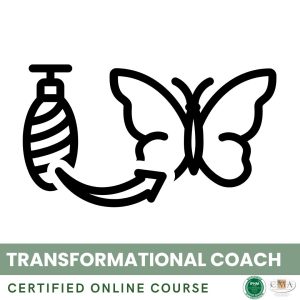Spiritual healing is a powerful and transformative approach, but like all practices, it has its limits that are important to acknowledge. The Spiritual Healing Coach must be aware of these limits in order to practice their art with integrity and responsibility.
One of the major limitations is that spiritual healing cannot and should not replace medical and psychotherapeutic treatments when they are necessary. Certain pathologies, whether physical or mental, require specialized care. The coach is not a doctor, psychiatrist or psychologist (unless they have these specific qualifications). Their role is to provide complementary support, but they cannot replace health professionals.
Take the example of a person suffering from a serious illness such as cancer. Spiritual healing can be of great support to help mobilize their inner resources, give meaning to their ordeal, connect to their life force. But it cannot in any case replace essential medical treatments such as chemotherapy or surgery. The coach will encourage the person to follow the protocols prescribed by their oncologist, while offering them a space to work on the emotional and spiritual dimensions of their healing.
The same goes for severe mental disorders like psychoses, bipolar disorders, major depressions or addictions. These pathologies require appropriate psychiatric and/or psychotherapeutic follow-up. Spiritual healing can be a valuable supplement, but it cannot replace specialized care. The coach must be able to recognize signs of seriousness and guide the person to the competent professionals.
Another limitation of spiritual healing is that it cannot free itself from the free will and individual responsibility of the accompanied person. The coach can offer a caring space, powerful tools, enlightened guidance, but it is always the person who chooses what to do with it. Healing cannot be imposed from the outside, it requires the commitment and active participation of the person undergoing it.
Imagine a person consulting a Spiritual Healing Coach for recurrent problems in their emotional relationships. The coach will help them become aware of their patterns, heal their abandonment wounds, reconnect to their self-esteem. But if this person does not put these insights into practice in their life, if they continue to reproduce the same behaviors, then healing will not be able to truly take root. The coach cannot live for the other, they cannot make decisions for them. Their role is to awaken consciousness, to provide keys, but it’s up to the person to be responsible on their journey.
This leads us to another important limit: spiritual healing is part of a global life context, it cannot ignore external realities and social determinism. A person can do profound inner work, transform their view of themselves and the world, but if they live in conditions of precariousness, violence or oppression, their healing will inevitably be impacted. The Spiritual Healing Coach needs to be aware of these factors and not fall into a “psychologising” vision that would hold the individual responsible for situations beyond their control.
Take the example of a woman victim of domestic violence. Spiritual support can help her reconnect with her worth, her inner strength, set boundaries. But if this woman does not find concrete support to leave her abusive partner, if she does not have material and social resources, her healing will be hampered. The coach needs to know how to guide her to the right help structures, and not make the person feel guilty for a situation she is victim of.
Finally, a last limit to consider is that healing is not always synonymous with “return to the previous state”. Healing a trauma, a disease or an addiction does not necessarily mean getting the life you had before. Healing is often a process of deep transformation that leads us to become a new version of ourselves. It can involve renunciations, radical life changes, acceptance of certain limitations.
A man who becomes paraplegic following an accident will not regain the use of his legs, even if he undertakes a profound journey of inner healing. A woman who has been raped will not be able to erase this event from her history, even if she learns to live with it and free herself emotionally. The coach should help people make peace with their reality, find new meaning in their life, without letting them believe they can return to a previously idealized situation.
Recognizing these limitations does not diminish the power and relevance of spiritual healing. On the contrary, it allows it to be placed within an ethical and responsible framework, in combination with other approaches. The Spiritual Healing Coach is a valuable link in the overall support of the person, but he is not the only one. By being humble and aware of their field of action, they can offer the best of their art to serve those who are journeying towards greater peace, freedom and alignment with their deep being.
Key points:
– Spiritual healing is a powerful complementary approach, but it has its limitations that are important to acknowledge.
– It cannot and should not replace medical and psychotherapeutic treatments when these are necessary, especially for serious pathologies such as cancers, severe mental disorders or addictions.
– Spiritual healing cannot free itself from the free will and individual responsibility of the accompanied person. The coach gives keys but it is up to the person to put them into practice in their life.
– It fits in a global life context and cannot abstract from external realities and social determinants that impact healing.
– Healing is not always a return to the previous state, it often implies a deep transformation and the acceptance of certain realities.
– Recognizing these limits allows to place spiritual healing within an ethical and responsible framework, complementary with other care approaches.
👉 To download docx (Editable) file click here : Click here
👉 To download PDF file click here : Click here
👉 To download MP3 file click here : Click here







